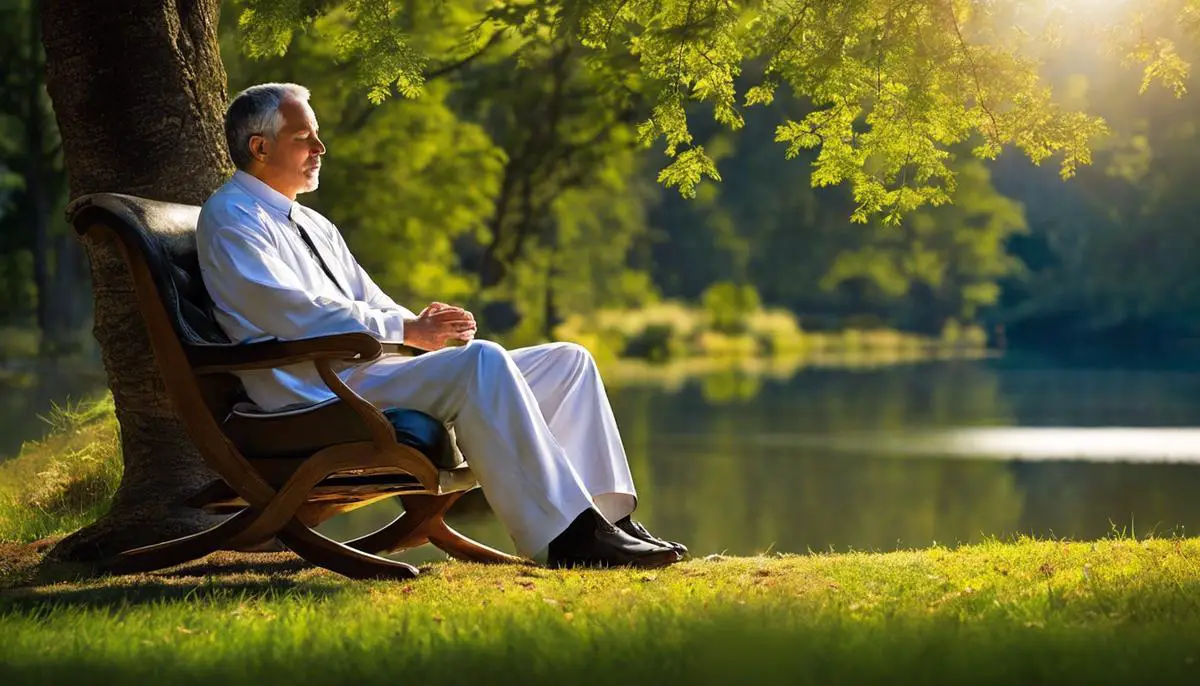
Burnout is a very real and prevalent issue for pastors.
They bear the weight of the spiritual and emotional needs of their congregants.
Oftentimes, the tirelessly devoted clergy overlook their own needs, resulting in physical and mental exhaustion.
This is especially important as many pastors make the well-being of their flock a priority, often to their detriment.
However, it’s imperative to understand that to efficiently serve others, one’s well-being is vital.
Consequently, it’s necessary to perceive self-care not as selfish indulgence but as necessary spiritual stewardship.
This involves understanding the importance of maintaining healthy boundaries.
It also requires acknowledging the role of spiritual and social support in preventing burnout.

Self-Care

As shepherds of Christ’s flock, pastors serve in a unique position of influence, love, and responsibility.
Yet, the weight of these duties can be overwhelming, leading to an all too common phenomenon – pastoral burnout.
A high-stress environment, coupled with emotional and spiritual demands, can deplete even the most passionate and earnest of ministers.
That’s why self-care practices for pastors are not only important but essential.
For pastors yearning for spiritual and emotional longevity, sustaining a robust relationship with God is crucial.
This relationship should be the cornerstone of their self-care process.
Daily Devotion

This involves daily devotion and quiet time spent reading God’s word, praying fervently, and meditating on spiritual truths.
Additionally, it includes simply basking in His presence.
It forms the core foundation that will help pastors endure the incomings of stress, anxiety, and burnout.
Physical wellness should never be sidelined in pastoral self-care.
The Bible implores, ‘Do you not know that your bodies are temples of the Holy Spirit, who is in you, whom you have received from God?’ 1 Corinthians 6:19.
Pastors need to maintain a consistent routine of physical exercise and healthy eating.
Sleep also plays a crucial role.
A well-rested mind can serve more effectively and remain resilient in the face of adversity.
Taking scheduled breaks is another crucial aspect of pastoral self-care.
Intentional periods of self-reflection and relaxation can rejuvenate exhausted spirits and provide a new perspective on spiritual duties.
It is within these quiet moments that pastors can listen to God’s voice and renew strength for the journey ahead.
Likewise, boundaries are essential for pastors to establish and maintain healthy relationships in their ministerial ecosystem.
They must learn to delegate responsibilities, say no graciously but firmly when needed, and determine which needs they can realistically attend to.
This is an act of wisdom that protects pastors from being spread too thin as well as respecting personal and family time, creating a balance beneficial in curbing burnout.
Seeking External Help

Furthermore, pastors must remember that they are not insulated from the need for external help.
It is common – and indeed, beneficial – for pastors to seek guidance from mentors, friends, or professional counselors.
Having a safe space to share struggles, fears, and concerns is crucial in maintaining mental, emotional, and spiritual health.
Additionally, celebrating both the small and big victories breeds joy within the pastoral role.
It is important to remember that in every win – be it the growth of a church member, a successful outreach event, or a day well spent with family – is an opportunity to honor God’s faithfulness and provision.
Lastly, pastors are encouraged to nurture hobbies and interests outside the pastoral landscape.
Engaging in creative outlets such as music, art, gardening, or exploring the outdoors can provide a much-needed reprieve from the constant call of ministry duties.
Serving in pastoral leadership is indeed a high calling, a passionate commitment, and not without its challenges.
However, with a dedicated routine of self-care, pastors can safeguard their hearts, minds, and spirits for the enduring task of nurturing God’s beloved flock.
With God’s grace and our diligent efforts, pastoral burnout can be prevented and longevity in ministry achieved.
Maintaining Healthy Boundaries

As we continue this discourse on avoiding pastoral burnout, one essential element that can certainly make a difference is the concept of healthy boundaries.
As with any other profession, pastoral ministry carries its own unique set of challenges.
Given the emotional and spiritual nature of this role, ministers often walk a thin line between meeting the needs of their community and taking care of their well-being.
Balancing both is vital in preventing feelings of being overwhelmed, and this is where the establishment of healthy boundaries steps in.
Healthy boundaries allow pastors to form an external circle of protection that helps in distinguishing personal and pastoral responsibilities.
It is natural for congregants to look to their ministers for guidance, counsel, and enlightenment at all hours.
However, without boundaries, the constant demands on time and energy can lead to exhaustion, resentment, and eventually, burnout.
Boundaries in communication are also key to maintaining a healthy pastoral life.
Emphasizing a schedule for accessibility, such as specified calling hours or limited email response times, does not negate the pastoral duty to be available for the flock; rather, it demonstrates that pastors too, need time for rest, reflection, and replenishment.
The concept of healthy boundaries also extends into the home.
Pastors’ homes are often seen as extensions of the church, causing family time to become intertwined with church responsibilities.
By establishing boundaries, pastors can protect time dedicated to their spouses and children, creating a haven for nurturing relationships and shared experiences.
Building Relationships with Congregants

Maintaining healthy boundaries with congregants is another vital ingredient in mitigating pastoral burnout.
Pastors should aim to develop relationships based on mutual respect and understanding, avoiding over-dependency and the risk of manipulation.
They should allow congregants to take up responsibilities, empowering them in their spiritual growth, while simultaneously easing the pastoral burden.
Professional boundaries also have a role to play.
Some pastors may struggle with tough church administrative decisions or bearing the burdens of challenging parishioners.
To alleviate such scenarios, pastors can benefit from the wisdom of ecclesiastical boards, committees, or a mentor’s counsel.
Ultimately, practicing healthy boundaries can truly prevent pastoral burnout by fostering a ministry that promotes balance, prioritizes self-care, and respects personal limitations.
Implementing these boundaries need not be seen as a sign of weakness or inadequacy in the eyes of God.
Instead, it is a testament to our humanness, reminding us that while we are God’s chosen instruments for spreading His Word, we also need to be sustained, renewed, and shielded from the burnout that can hinder our mission.
Spiritual and Social Support

Looking after one’s well-being is not being selfish; it’s a necessary aspect of doing well by others.
Being a pastor is a noble and demanding calling that requires immense emotional and spiritual strength.
However, the need for self-care, setting boundaries and ensuring proper spiritual and social support should not be understated or dismissed.
As pastors care for others, they should also care for themselves.
By exercising, eating well, setting aside time for rest and recreation, maintaining healthy boundaries, and cultivating strong relationships and support networks, pastors can continue to fulfill their mission with vibrancy and longevity.
Life as clergy doesn’t have to mean constant stress and burnout—by implementing these steps, it’s perfectly possible to have a healthy, well-rounded life both inside and outside the ministry.
